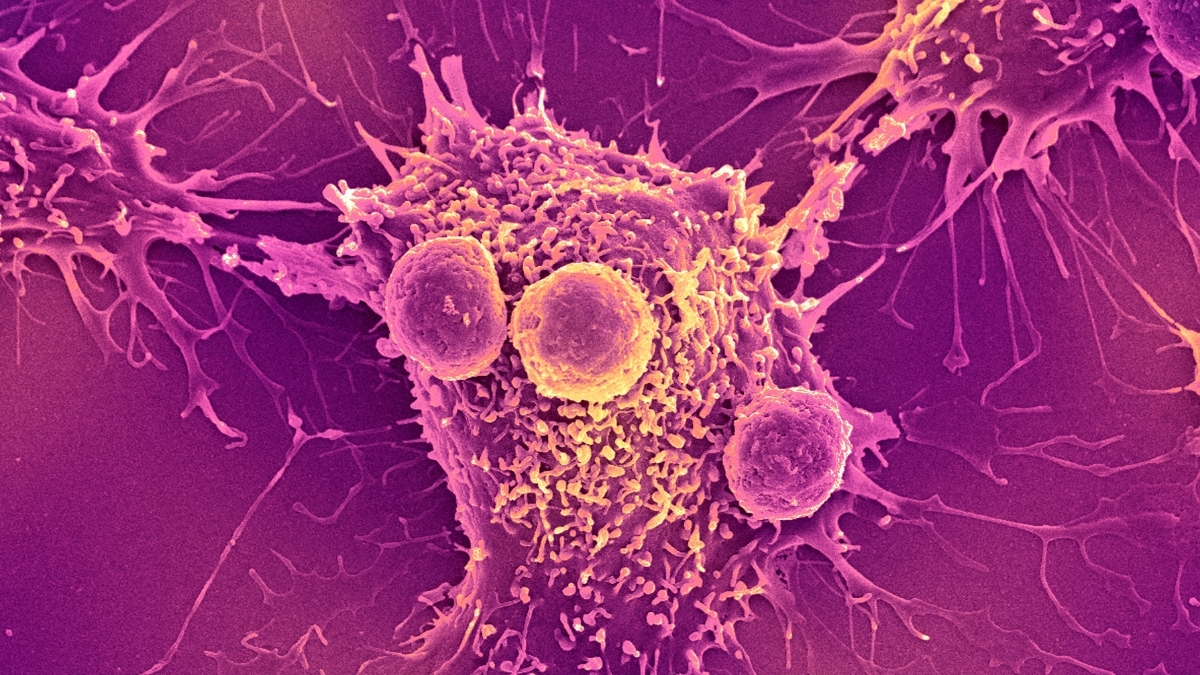
Cancer Vaccine Blocks Multiple Tumors in Mice For 250 Days : ScienceAlert
A new vaccine can effectively prevent multiple types of cancer, with up to 88 percent efficacy for some forms of tumor in mouse tests.
Like a vaccine designed to prevent or reduce illness from viral infections, this cancer vaccine works by training the immune system to attack tumors when they next appear.
Nanoparticles in the vaccine present a recognizable component of cancer cells as an antigen – a label that alerts our immune cells to a threat. A second material, described as a ‘super’ adjuvant, further stimulates the immune system to go on the offensive.
Related: ‘Universal’ Cancer Vaccine Destroys Resistant Tumors in Mice
In the first tests, scientists at the University of Massachusetts Amherst vaccinated a group of mice with nanoparticles containing melanoma peptides, before exposing the test animals to melanoma cells a few weeks later.
Of the mice that received the nanoparticle vaccine, 80 percent survived and stayed tumor-free for the 250-day duration of the study. By contrast, all of the mice that weren’t vaccinated or were given different formulations succumbed within seven weeks.
In the second test, the team used a more general antigen – a substance called tumor lysate, made of broken-up cancer cells. It was hypothesized that the lysate may alert the immune system to a range of cancer types, which would be helpful in preventative cases.
Mice were given this version of the vaccine before being exposed to either melanoma, pancreatic, or triple-negative breast cancer. And again, the majority remained tumor-free: 88 percent of those exposed to pancreatic cancer, 75 percent for breast cancer, and 69 percent for melanoma.
The researchers unsuccessfully attempted to simulate the spread of cancer in the surviving mice, finding 100 percent of them remained tumor-free.
“By engineering these nanoparticles to activate the immune system via multi-pathway activation that combines with cancer-specific antigens, we can prevent tumor growth with remarkable survival rates,” says Prabhani Atukorale, biomedical engineer at UMass Amherst.
The team says the key is the so-called super adjuvant, which consists of lipid nanoparticles that encapsulate two immune adjuvants and deliver them together to boost the immune response.
Of course, at this stage, the work has only been conducted in mice, so there’s no guarantee that results will translate to humans.
But this technique could potentially be adaptable to a range of different cancer types, helping to both treat patients after diagnosis and prevent cancer from taking hold in high-risk patients.
The research was published in the journal Cell Reports Medicine.
First Appeared on
Source link






